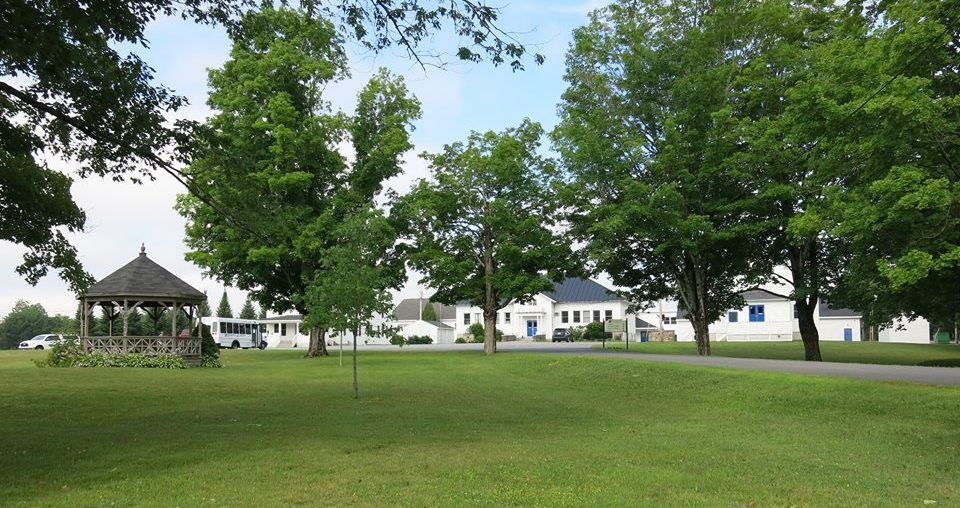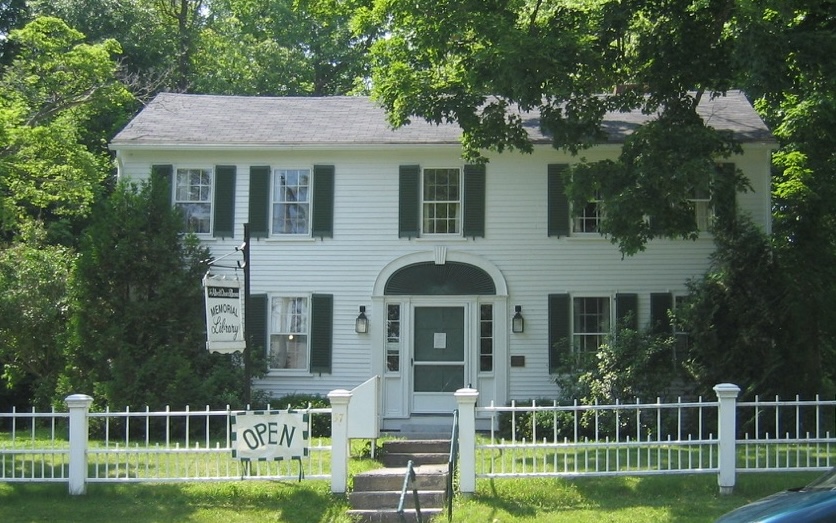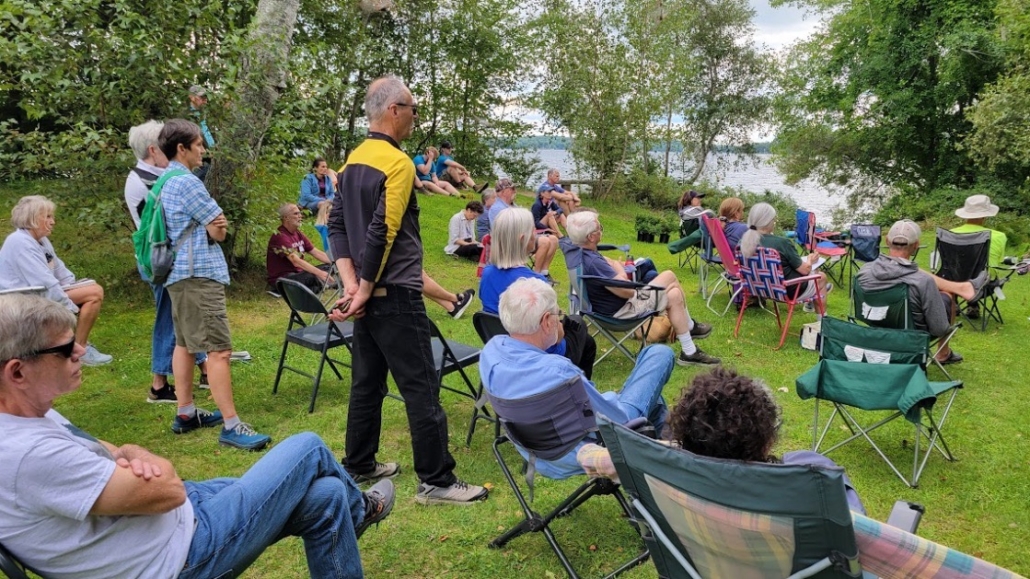The promise of fresh-baked apple crisp with ice cream drew nine people to the China select board’s Sept. 23 public hearings on Nov. 5 local warrant articles and on amendments to the town’s General Assistance Ordinance. Six stayed for at least part of the select board meeting that followed.
The apple crisp was praised.
China’s Nov. 5 voting includes local elections and five referendum questions that were topics of the first public hearing. The municipal ballot is on the town website, chinamaine.org, under the Elections tab in the green box on the right-hand side of the main page.
The referendum question that drew most discussion was the proposed new Budget Committee Ordinance. If approved, it will replace the present system under which four of China’s seven budget committee members are elected, one from each of four districts. Instead, select board members will appoint budget committee members.
Voters approved a similar change for the planning board at the annual town business meeting in June.
The main reason for proposing the change, Town Manager Rebecca Hapgood said, is the lack of candidates for budget committee seats. On the Nov. 5 ballot, Timothy Basham is running unopposed for re-election from District 4; write-ins (if any) will fill the District 2, secretary and at-large positions.
Write-ins complicate ballot clerks’ lives, Hapgood said. If there is a tie between write-ins, the clerks must contact each person to see whether he or she wishes to serve. Anyone who does not wish to serve must sign a sworn (notarized) oath turning down the office that must be filed with the town clerk.
If more than one person tied for a position is willing to serve, there would need to be another election for the position.
Hapgood said when a town official asks someone to volunteer for a committee position, the answer is more likely to be yes, perhaps because there is no need to collect signatures on nomination papers.
Tod Detre, one of five Nov. 5 candidates for three seats on the select board, and former select board member Joann Austin expressed concern about the five select board members appointing members of all other major town committees.
Current board chairman Wayne Chadwick said he thinks China select board members have never “stacked” committees they’re empowered to appoint on the basis of beliefs, geography or any other factor.
A broader discussion of the lack of civic engagement and related topics followed.
Select board member Brent Chesley said in two years on the board, he’s not received a single call from a resident about town business, though his cellphone number is on the town website.
Austin argued in favor of returning to the pre-Covid open town business meeting in the spring, so voters can ask questions and know what they’re voting on. Detre and Chadwick said a written-ballot meeting lets more people participate.
The second public hearing, on the state-presented amendments to the local General Assistance Ordinance and its appendices, drew no comments. Select board members adopted the amendments at their meeting following the hearing.
Three ongoing issues on the select board agenda were the planned storage vault for town records; the South China boat landing; and the revised solid waste disposal agreement with Palermo.
Sheldon Goodine, chairman of the town’s building committee, outlined Plan No. 4 for the new storage area. This plan calls for an addition to the town office building on the south side, at the east end (farthest from Lakeview Drive) rather than the west end as an earlier plan proposed.
Goodine expects more information in a week or so.
Hapgood said the Maine Department of Environmental Protection has approved a permit for proposed run-off controls at the South China boat landing. The next step, she said, is acquiring the needed concrete planks. One company will have none until spring; she will contact other companies.
Select board members approved the agreement with Palermo to allow that town’s residents to continue to use China’s transfer station. Hapgood said Palermo’s town meeting to act on the revised agreement is scheduled for Thursday, Oct. 17.
Hapgood announced that the Federal Emergency Management Agency has approved $51,436.15 to reimburse China for cleaning up roadside debris after the December 2023 storm. She is still talking with FEMA officials about reimbursement for other storm-related expenses.
The manager announced that China’s 2023 town report received an award from the Maine Municipal Association. She thanked Town Clerk Angela Nelson for her work on the report, and Jason Rushing for his cover photo.
MMA’s letter, published with the select board meeting agenda, begins: “I am pleased to announce that China has been selected as the ‘supreme’ first place winner of the 2024 Annual Report Competition in the 2,500 to 4,999 population category.”
The report will be displayed, with other winners, at the MMA convention in Augusta Oct. 2 and 3. Select board members appointed Director of Public Services Shawn Reed as China’s voting delegate at the convention’s business meeting, with Hapgood his alternate.
The next China select board meeting is scheduled for Monday evening, Oct. 7. Hapgood announced other events early in October: absentee ballots for Nov. 5 will be available Monday, Oct. 7; town departments will be closed Monday, Oct. 14, to observe Indigenous Peoples’ Day; and the docks at the boat landing at the head of China Lake’s east basin are scheduled to be removed the week of Oct. 14.









 submitted by Rebecca Hapgood
submitted by Rebecca Hapgood



 COMMUNITY COMMENTARY
COMMUNITY COMMENTARY